President-elect Donald Trump’s announcement of a “Department of Government Efficiency” (DOGE) caught many conservatives off guard. On paper, a parastatal entity determined to “dismantle Government Bureaucracy, slash excess regulations, cut wasteful expenditures, and restructure Federal Agencies” should be catnip to small-government types. And yet, many Reaganites rolled their eyes. Oddly enough, a scattering of leftist lawmakers, including Bernie Sanders and Ro Khanna, have shown more enthusiasm—or at least an openness to hijacking DOGE’s brief—to streamline defense spending. Several budget hawks on the right, by contrast, have largely dismissed DOGE as a sideshow to Congress.
We understand the skepticism. Didn’t David Stockman, the “father of Reagonomics,” try cutting spending in the early 1980s in his role at the Office of Management and Budget, only to conclude that Americans rather liked their government goodies? President Trump himself oversaw growing deficits and has made entitlements sacrosanct. He didn’t want to use the debt ceiling to force spending restraint while in office, and just tried to demand a higher debt limit as Congress rushed to pass a stopgap spending bill. Meanwhile, a permanent army of Washington lobbyists stands ready to defend every subsidy under the sun. To fiscal veterans, DOGE might look like another tough-talking shop, at best a balloon that will pop as soon as it hits the pin of politics.
Yet this reflexive cynicism seems self-defeating and might even become a self-fulfilling prophecy. Just a month ago, barely anyone inside the Beltway talked of downsizing a single federal program. Systematic deregulation was as fashionable as powdered wigs. Making serious cuts to America’s bloated bureaucracy seemed like quaint, early Reagan-era pipe dreams. Yet Washington’s conversation has already shifted. DOGE’s leaders Elon Musk and Vivek Ramaswamy regularly rail against vast swathes of federal spending, talk up the deficit problem, and have flexed political muscle in the continuing resolution negotiations. What can be gained by rubbishing their bigger effort before it’s even founded?
If there’s even a 1 percent chance that DOGE could live up to half of Musk’s or Ramaswamy’s stated ideas, that would be worth champions of small government investing time and energy to making it happen. The potential prize is bigger than most of our careers: a real and lasting reduction of the scope of the federal Leviathan.
What’s the downside? Even if the enterprise fizzles out, DOGE is already reintroducing the idea of cutting programs or privatizing entities into public debate, blasted to Musk’s nearly 210 million X followers. Expanding the Overton window on government spending is a first step that will, at the very least, leave behind some intellectual real estate for future campaigns.
That’s why we rallied our optimistic cadre of libertarian Cato colleagues into writing a report of recommendations to the DOGE. We collated 23 chapters of recommendations, detailing spending cuts worth around Musk’s stated ambition of $2 trillion per year alongside major deregulatory overhauls of sectors like energy, child care, finance, and marine transport. As good libertarians, we hold no truck for sacred cows: There are recommendations for defense cuts that will annoy many conservatives, as well as steps to stem the growth of entitlement spending. Yet the bulk of this work should appeal to DOGE, including transferring government functions back to the states and ending almost all government special privileges and subsidies—for renewables, student loans, farming, and more.
Right now, DOGE’s scope and scale remain uncertain. Washington insiders urge a narrow, timid mission: a big glossy report to identify government waste, improve procurement, or switch off a few lights in empty federal buildings. Sure, rooting out such glaring inefficiencies is all well and good. But if DOGE confines itself to improper payments and outdated IT systems, it will become a glorified housekeeping service for a mansion that gets bigger and more expensive every year. A legacy of “making Big Government more efficient at doing bad things” is surely not what Musk and Ramaswamy have in mind.
No, to achieve progress worth having, DOGE must think bigger. The plain fact is that the federal government is so large that it can’t help but fall over itself. One arm subsidizes crops going into unhealthy foods; another pays for nutrition campaigns. The feds write expensive checks for disaster relief while subsidizing insurance in flood zones. We could go on, but the list of contradictions would be longer than the continuing resolution that the DOGErs killed. No operational tinkering can fix those fundamental tensions. Achieving meaningful efficiency is impossible without cutting back the state’s functions to a few legitimate tasks that can then be monitored.
Our most important message in the report is that DOGE can play a dual role: not just working with the Office of Management and Budget to identify things the executive can do to eradicate waste but also acting as a political pressure agent on Congress to pass laws to shrink the government.
More importantly, though, we want to offer concrete policies for DOGE to consider. For decades, politicians mouthed platitudes about “waste” and “red tape” while federal spending and regulations soared. Our report doesn’t gesture vaguely toward reform; it lays out specific proposals—executive orders, rule changes, and legislation—that could combine to balance the budget and liberate vast swathes of the economy from regulation. The logic is straightforward: Identify activities that are superfluous, destructive, or beyond the government’s proper role, then excise them. Streamline only what remains.
The underlying principles that drive these recommendations should appeal to small-government conservatives. First, tie federal activity strictly to constitutionally enumerated powers. That means devolving huge areas (like most of education) back to the states while shrinking Washington’s reach dramatically in sectors like energy, the environment, child care, and elsewhere.
Second, deregulate as far as possible. Taking the lead from Argentina’s Javier Milei, DOGE shouldn’t waste time identifying regulatory changes that pass some easily gameable, technocratic cost-benefit analysis. In fact, broad and sweeping deregulation is essential for political buy-in: You want industries and businesses arguing to get rid of others’ privileges, rather than scrambling to protect their own. Unless there are clear externality problems, new technologies should be permitted to develop and thrive, and existing price, entry, social, labor, medical, antitrust, and other supply-side controls should be eliminated.
Going beyond specific deregulation, DOGE should encourage Congress to salt the earth to prevent the sprouting of new rules. Sunsetting statutes that authorize agencies’ rule-making authority and putting a time limit on the regulations themselves would force Congress to periodically revisit these powers. The REINS Act, which has passed the House many times but not become law, would require congressional approval of any new major regulation via an expedited process.
The spending logic is equally plain. There’s a strong macroeconomic case for reducing expenditure now to mitigate our currently unsustainable debt path. Most government spending is distortionary to the economy anyway, meaning most cuts will help strengthen economic growth prospects, long-term. While President-elect Trump will likely reject cutting entitlements, the key debt driver, DOGE might start eating away at the political support for various subsidies and favoritism. In fact, Musk has extra credibility on this given his stated ambition to eradicate subsidies in one of his own industries, electric vehicles. A few tens of billions of cuts here and there can add up to real money saved and the scope of government reduced.
“Stroke of the pen, law of the land. Kinda cool,” crowed former Clinton adviser Paul Begala, neatly capturing what small-government types despise about executive orders. But here’s a twist to warm your heart: What a pen puts in place, another can just as easily strike out. Presidents hold enormous power to rip up their predecessors’ rulebooks. And on this we agree with Ramaswamy: Scrapping directives that stomp on economic liberties, trample individual rights, and bloat the state isn’t overreach—it’s a long-overdue purge of meddling unsanctioned by Congress. We come with specific orders to revoke or revise policy issues as diverse as energy, environment, the administrative state, education, health care, and more.
Taxation may not be DOGE’s immediate priority, but it’s impossible to ignore. Many Trump-era tax cuts are set to expire at the end of 2025, and the code is stuffed with special-interest giveaways and green boondoggles signed by President Biden. Junk them—no recycling, straight to the landfill!—and revive the principle of broad-based, and low-rate taxation. For DOGE to take a stand against cronyism in taxation would be a logical extension of its spending mission.
All of this can—and should—be coupled with genuine efficiency measures, of course. There’s nothing wrong with upgrading government technology, eliminating duplicate agencies, and insisting on accountability and merit in the civil service. But that only makes sense in service of a broader objective: cutting government down to size. If anything, efficiency reforms without strategic cuts just make an overbearing state harder to resist. Other than the people directly employed, who benefits from a machine churning out DEI mandates or squandering cash on green junkets more effectively?
We are under no illusions that this sort of all-encompassing reform agenda is possible within a four-year term, or indeed that Congress would want to do it all. Not only would many politicians reject our libertarian premises, but the political economy of Congress, not to mention the government itself, makes fundamental change incredibly difficult. But should that doom us to sit on our hands and merely complain about how attempts to shrink government always fail? Of course not.
Politics can sometimes surprise you. Previous major legislation, like the 1986 tax reform, seemingly came from nowhere and experts predicted it couldn’t overcome the power of special interests.
DOGE also comes at a time when a more originalist judiciary has largely made conditions more favorable for weakening the executive, Democratic interest groups are reeling from the election defeat, and a raft of doers and shakers from the tech sector are headed to Washington wanting to get the country building again.
DOGE’s underlying mission is vast, thorny, and controversial. Still, if Bernie Sanders and Ro Khanna can spot a narrow window of opportunity here, small-government stalwarts could surely feed in productive ideas to give it the best chance of success.
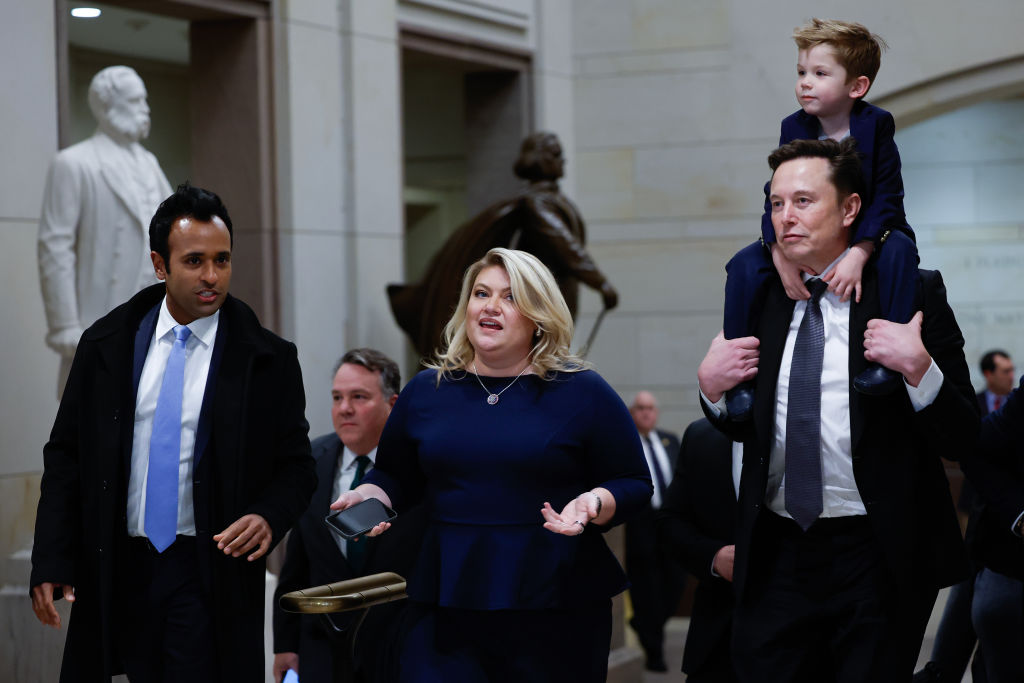
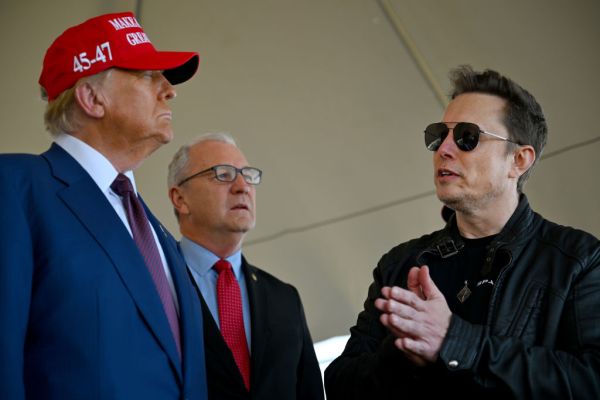
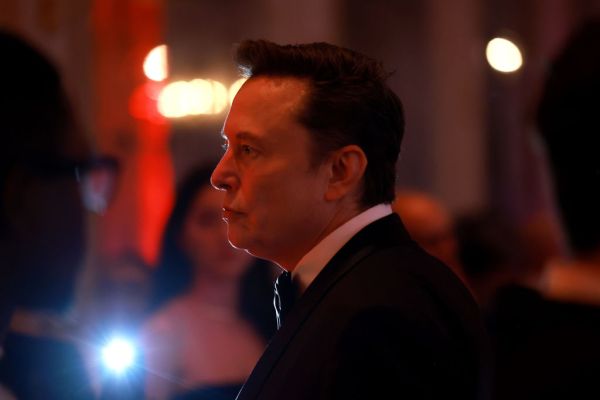
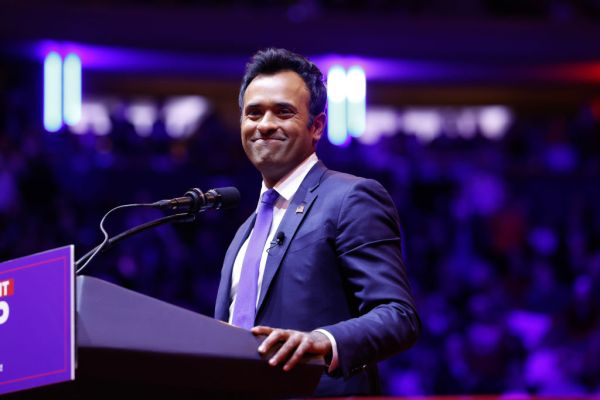

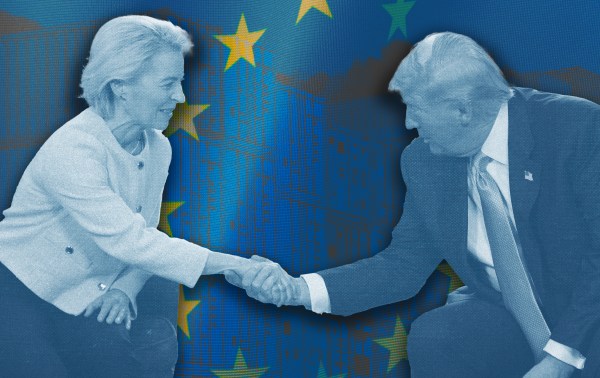
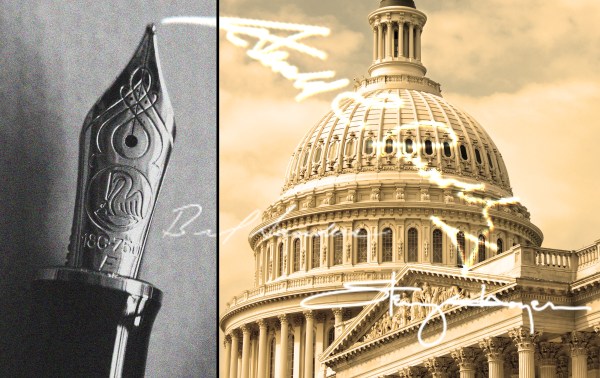


Please note that we at The Dispatch hold ourselves, our work, and our commenters to a higher standard than other places on the internet. We welcome comments that foster genuine debate or discussion—including comments critical of us or our work—but responses that include ad hominem attacks on fellow Dispatch members or are intended to stoke fear and anger may be moderated.
With your membership, you only have the ability to comment on The Morning Dispatch articles. Consider upgrading to join the conversation everywhere.